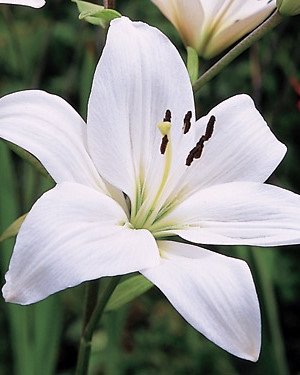This is not really a drama in the sense we understand drama to be. This is a historical series which lacks all "drama". You have to realize this before you start!
The whole series is focused on the REAL historical and political story of more than a decade - the Meji revolution and restoration. You HAVE to be interested in history, otherwise you will not enjoy this.
There is no romance or drama or villains in the sense we drama-lovers are used to. You will get no romantic scenes or unrealistic depictions of anything. Even when the heroine marries, you will not see her kiss or ever know whether they"consumed" the marriage or whatever.
You can call this a very dry story, because it lacks the "extra fantastic spice", but because of this, it is very pure, too. The story blossoms like a flower and you get attached to its characters very slowly, but on a deep level, it's like you share their experiences with them, because you take part in so much and for such a long time. And believe me, when you enter the mid-20th episodes, it will be gutt-wrenching what you witness and what you know were real life events... (Byakkotai, Saigo Tanomo's female family, etc.). This drama is by no means something for the faint hearted - it shows what the Boshin war was like, without any gruesome scenes, but perfectly portraying the events of such.
I love history and although I knew already some background facts about the end of the Bakumatsu period, I have never seen anything where the historical and political development of the 1860s is presented in such a detailed way. I learned so much about the clan wars of those times. You can watch and at the same time google the characters (the names are displayed) - they're are real. Also, at the end of every episode there are a few minutes of documentation about historical sites that are connected to these events! What a bonus! The documentary character is emphasized by the voice of a woman, who in each episode will resume some events or political settings, thus giving us a better overview.
It is quite outstanding to see the plot from Aizu's perspective (because Yae is Aizu), because they were the ones protecting the Shogunate in the end. (For those who don't know how history went, I don't want to spoil what's going to happen, so I won't say more on the content). As many others I had the opinion that they were just conservative and against change, but this drama showed me that in fact, they were victims to overall circumstances, too.
The directing and scenery are top-nodge, it is as realistic as it can get. Like a veeery long historical movie. I am happy with the actors, with the exception of (sadly) the main actress! I find her acting too obvious and she depicts Yae in a naive, plain way that I don't like or see fitting. In the opening of each episode (which is by the way maybe the most beautiful I have ever seen, beating even that of Nirvana on Fire), Yae is clearly stated as the heroine in such an dramatic and elegant way, that it just doesn't fit her display in the episodes itself. But oh well, that's a comparatively minor letdown.
So, for you out there, who love history and are interested in the end of the Samurai-period, this is maybe the rarest drama-jewel out there. Let me know what you think.
Esta resenha foi útil para você?

























